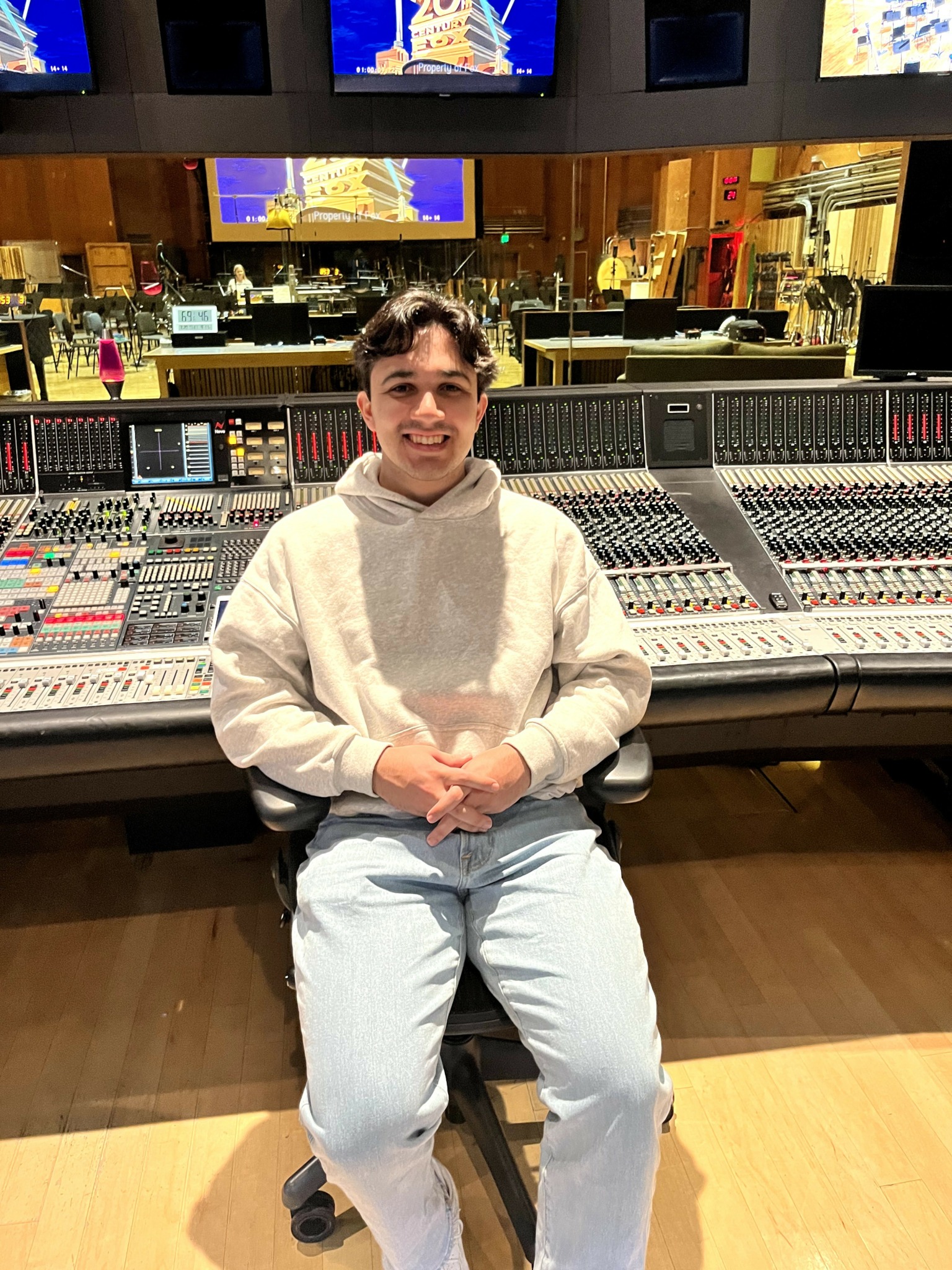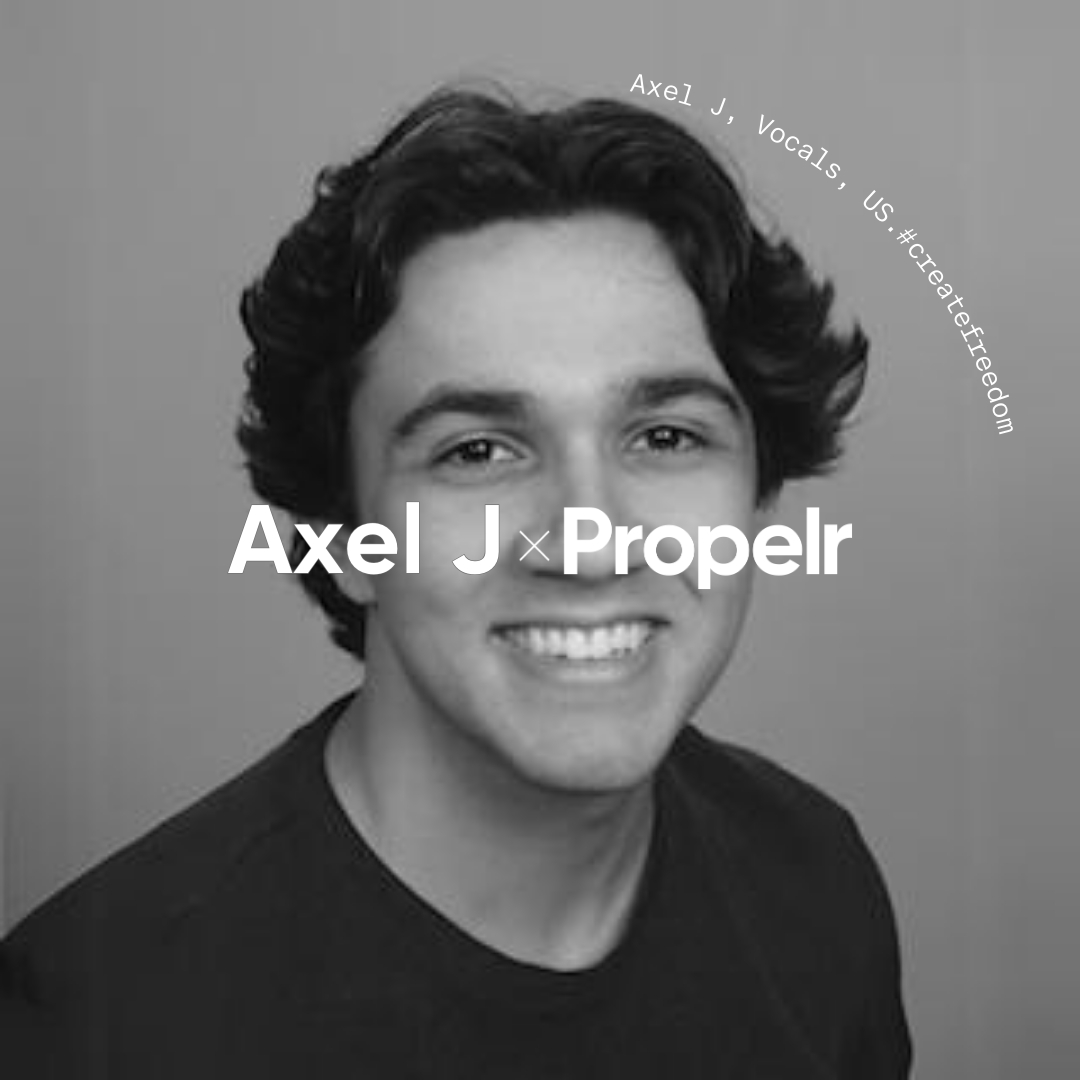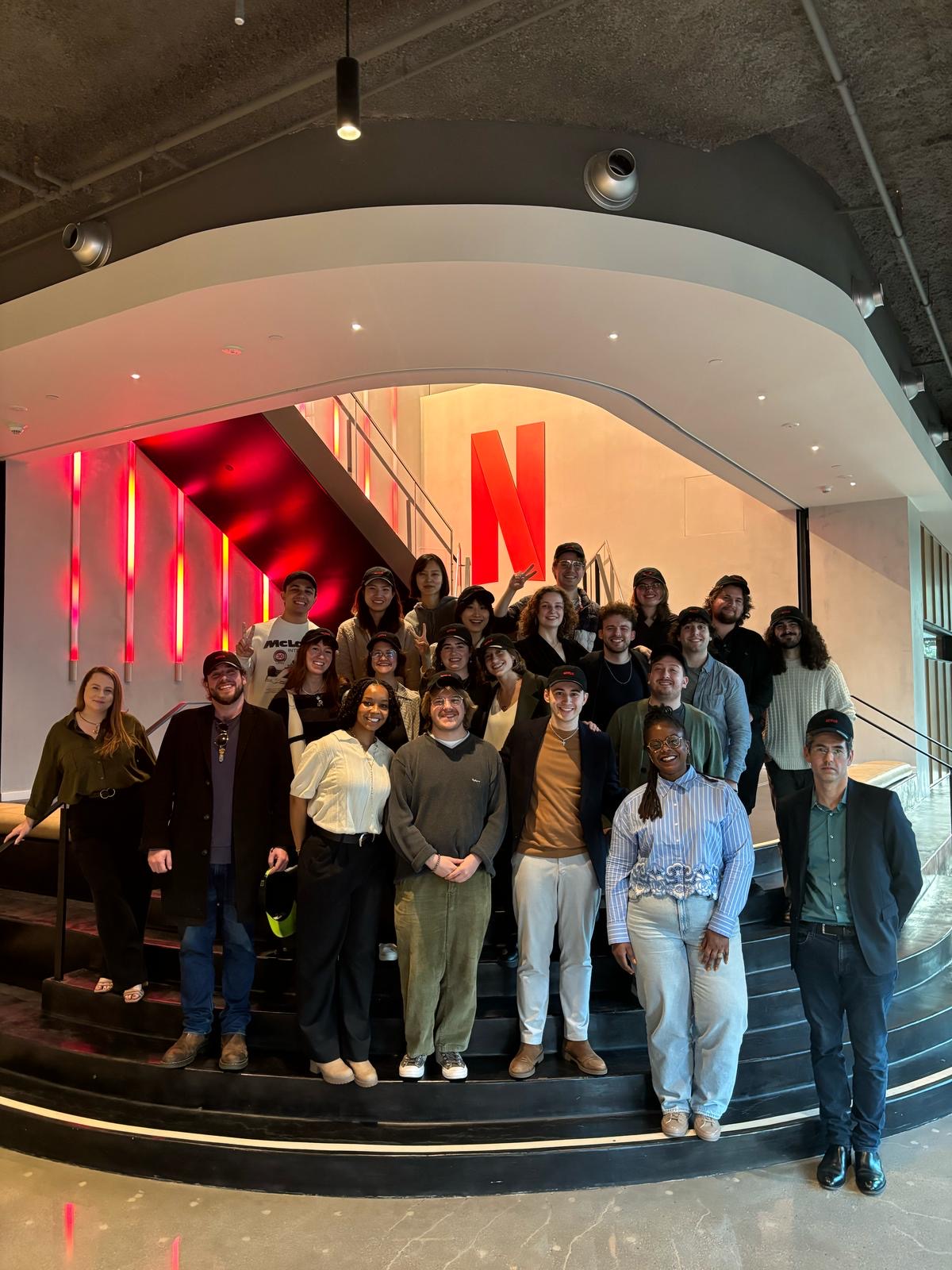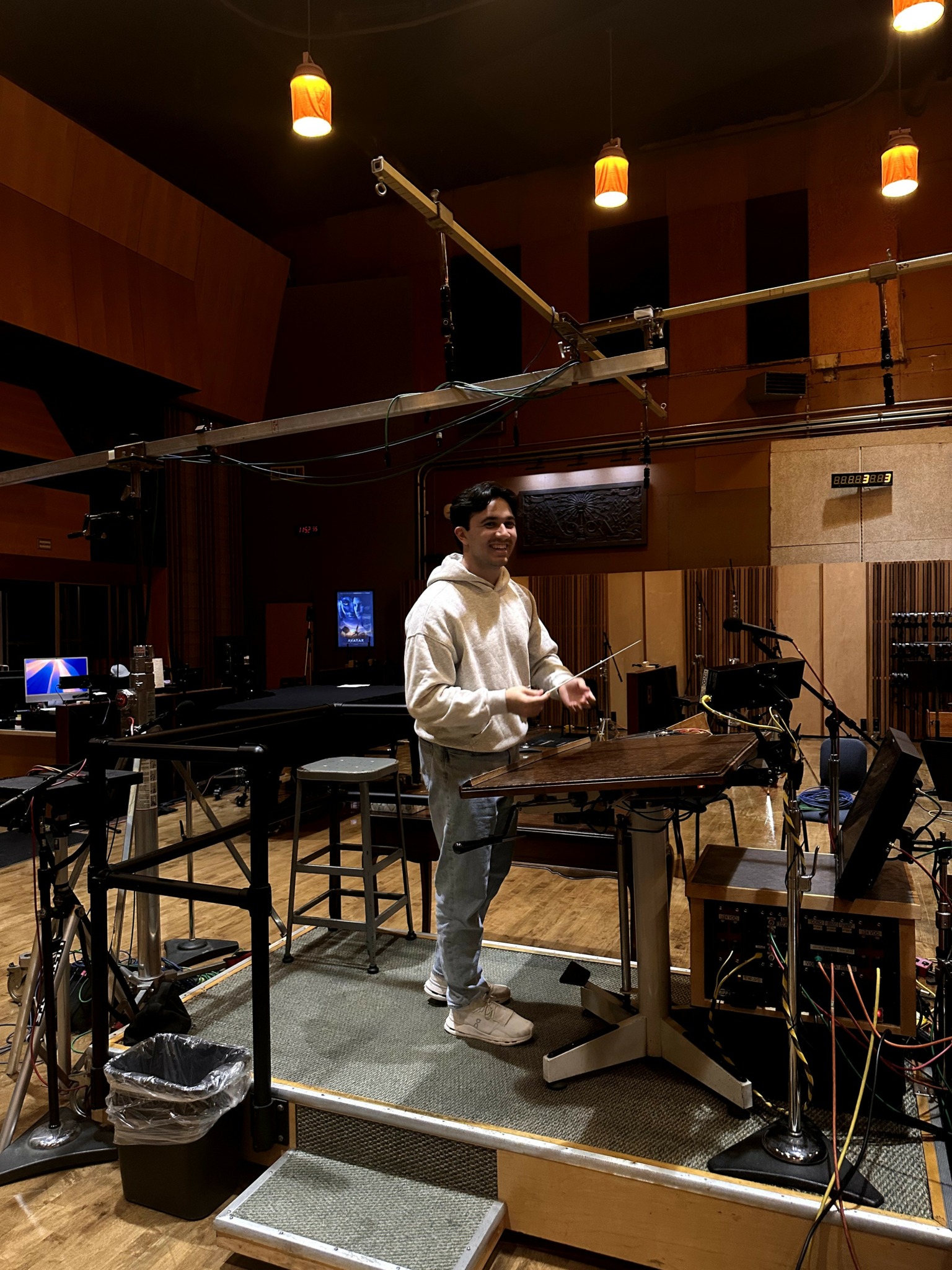We’re excited to introduce you to the always interesting and insightful Axel Castro. We hope you’ll enjoy our conversation with Axel below.
Hi Axel, thanks for joining us today. What’s been the most meaningful project you’ve worked on?
The most meaningful project I have ever worked on is a piece of music that I wrote for my mom. It is called “We Fly Together”. I wrote it in a time of turmoil for my family, and working on that piece really was a nice step away from all the chaos that was going on at the time.
I wrote this piece while participating in the Joy Music House workshop in NYC, and this was really the first time that I led a full orchestra of professional players, which was incredibly memorable. The cherry on top is that the story for my piece was inspired by my favorite film, “The Wild Robot”. These things, in combination with who I wrote it for, just made the whole process so special.
Something that I have come to appreciate almost a year later is that it is also one of the most honest pieces of music that I have written. I was not trying to sound like anyone other than myself, and the choices I made all reflect my musical upbringing, which is something that I am really proud of.

Axel, love having you share your insights with us. Before we ask you more questions, maybe you can take a moment to introduce yourself to our readers who might have missed our earlier conversations?
I am a film composer. I had no idea that writing music for film and TV was really a job until I was about to go to college. I was lined up to study Biomedical Engineering at the University of Florida, and that’s when I got to join a Zoom seminar with one of the greatest film composers out there, Michael Giacchino. This seminar completely flipped my world upside down, and I immediately started working toward becoming a film composer.
Once I decided this was the path for me, I felt somewhat unhappy at UF since the music program is lacking in the music for media department. This feeling led me to apply to Berklee, I was accepted, and have since worked on short films, projects for Netflix, and had a premiere at Carnegie Hall. This has all been a great start, but it really is just the beginning!
As a film composer, I primarily provide music for visual media. Film and TV tend to be the most common media I write for, but the skillset for film and TV composition allows for a lot of flexibility to write for music videos, video games, and a lot more.
Like most film composers, I love music, but I believe what sets me apart is that I am not afraid of rejection. There are so many times when I will write a piece of music to a particular scene, and the director has critiques or simply does not like the piece of music at all. Something that I have come to understand is that these feelings are not personal. The director is simply thinking about themselves and their story, as they should, and wants to produce the best product they can. It is at this moment that I, as the composer, need to take a step back and understand that instead of getting insulted by their words, or being afraid to mess up again, I should simply try my best to refresh my understanding of the scene and try again with the same enthusiasm that I had the first, second, third, or fourth time around.
I have also come to embrace rejection when it comes to finding work as a composer. It can be very challenging to get that first foothold in the industry, and oftentimes it takes hundreds of attempts before one opportunity lands. After getting rejected so many times, it is very easy for the fear of another rejection to replace the drive to keep sending applications with the same confidence you had for the first application you submitted.
I think what I am most proud of is that even though the life of an artist can be tough in the early stages, I have not compromised who I am and have continued to work with others with the security of someone who has been in the industry for 20 years. My point is, there is little virtue in being a great person when you have all the success you dreamed about and things are going well. I think the real challenge is when you are full of doubt and fear, can you still be a decent person? I have worked very hard to make sure that this is the case in every relationship that surrounds me. My friends from home in Florida, to my new colleagues out in Los Angeles, whom I have yet to meet in person, have all hopefully experienced the same positive and hardworking individual that they would see if I had all my dreams come true.
Whenever we work together, know that the person you are collaborating with cares about your story and cares about our relationship. To me, these are the two things that make film scoring worth fighting for, and I can’t wait to continue sharing these gifts with the world.

Is there something you think non-creatives will struggle to understand about your journey as a creative? Maybe you can provide some insight – you never know who might benefit from the enlightenment.
I think something that non-creatives may not understand is how long it takes to get good at your craft. Many creative skills take a long time to truly flourish, and I believe that music is something that you constantly need to chip away at before you can confidently say that you have created something amazing.
As someone who studied Biomedical Engineering for some time, I can say that when it comes to these sorts of professions, there is generally a formula that you can follow that works very well. For example, once you learn how to do a certain procedure, that case will come up again. Perhaps with minor variation, but in general, it is incredibly repetitive, and the main improvement as the years go by is the speed with which you complete the procedure.
I would say that music and the arts in general are the complete opposite. For film scoring, every single film is different and will require you to use a different skillset for each film. This applies to the entire process. Starting with the director, the preferences from one director to another could be polar opposites, and therefore, your musical process will likely change to fit the needs of one director and will change again to work with someone else. Musically, you may need to go from 18th-century India to the United States in the year 2300.
I think these dramatic changes make for such an inconsistent workflow that it takes longer for a composer to establish how they like to work and write. As a result, I have come to unify all these inconsistencies by just trying to write music that I think is cool. If I can at least do that, then the style and intricacies of a particular genre come through more easily with a light shading of my own musical touch.
All this to say, when a friend shows you a piece of music that they spent hours on, just consider what you say next. We know it’s not as good as Hans Zimmer yet, but there’s only one way to get there!

What’s the most rewarding aspect of being a creative in your experience?
To me, the most rewarding thing by far is when you feel a sudden jolt forward in improvement. There are so many times when I feel like I have been stuck on a plateau for months. As I keep working, a project suddenly comes along where I feel great working on it. It is a very strange feeling, but there is a sort of flow and stream of consciousness that had been missing while on the plateau. When I finish these projects, I often go back and listen to what I wrote, and it turns out that I probably wrote some of my best-sounding music to date.
I feel these moments are the brain putting together all the information it gathered over the last few months, and it manifests in a sudden boom of growth into the next plateau. These moments are really something that I live for because they mean that I am doing something right. It is a wonderful feeling to see your hard work and frustration come through in such an amazing and unexpected way.
Contact Info:
- Website: https://play.reelcrafter.com/axelcastro/reel
- Instagram: https://www.instagram.com/_.castro_/



